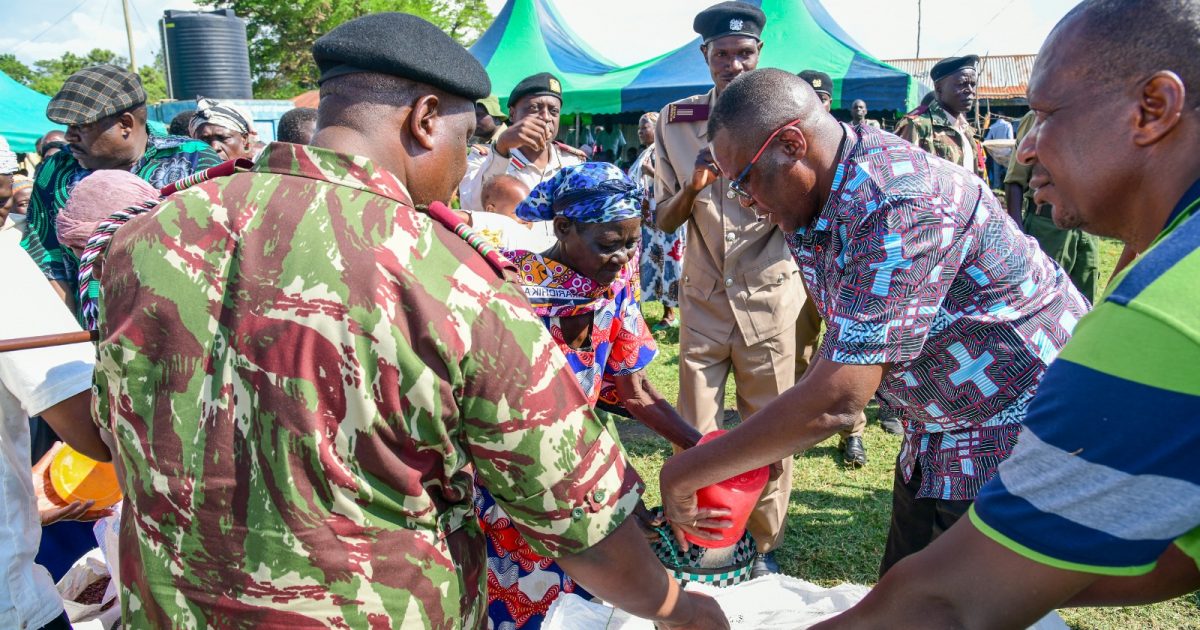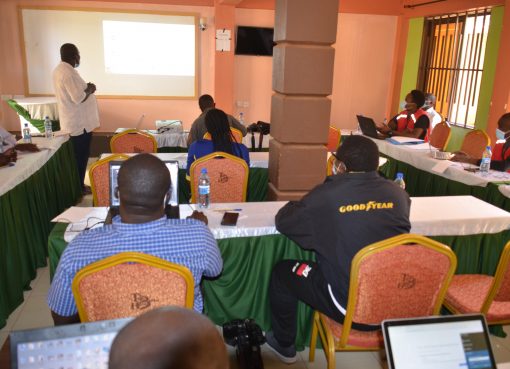Information, Communications and The Digital Economy Cabinet Secretary (CS) Eliud Owalo has assure residents of Migori County that the government will continue to distribute relief supplies in flood affected areas to help cushion the victims from the pangs of hunger and opportunistic ailments.
“For now, we will only prioritise issues that are core to protecting the lives of our people and ensuring that many projects are implemented all over the country to boost the economy,” he said.
Speaking at Lwanda and Aneko markets where he presided over the distribution of food to the affected people, Owalo said the State will also ensure that the damaged roads in the area are repaired promptly to allow free movement of the people.
The National Government, he noted, has set aside enough funds to procure relief food and medicine for the flood victims in the whole country, adding that Nyatike alone has its shares allocated to feed all the affected people.
More than 100 households with over 5,000 people have been displaced by flood waters in Nyatike area alone following the ongoing heavy rains pounding the region and the entire country.
At the same time, the floods have destroyed Angugo, Modi and Sere Primary schools among others, affecting learning in those institutions.
He said the Government would strive to build dykes and dams in Nyatike to prevent Lake Victoria water back flowing and also avoid river over flows for the benefit of the people.
“What we are currently doing is to see that our farmers are supplied with subsidised seeds and fertilisers, our fishing activities and marketing are improved and small and big industries revived for the sake of improving the people’s income and nothing else,” he added.
The CS said the government is also keen to revive the sugar industry, saying it has posted a substantive Managing Directors to Sugar factories such as South Nyanza Sugar Company (Sony) to enable them operate effectively.
Concerning the environment, Owalo encouraged Nyatike residents to plant more trees to increase forest cover within the region.
By George Agimba and Vivian Ochieng




